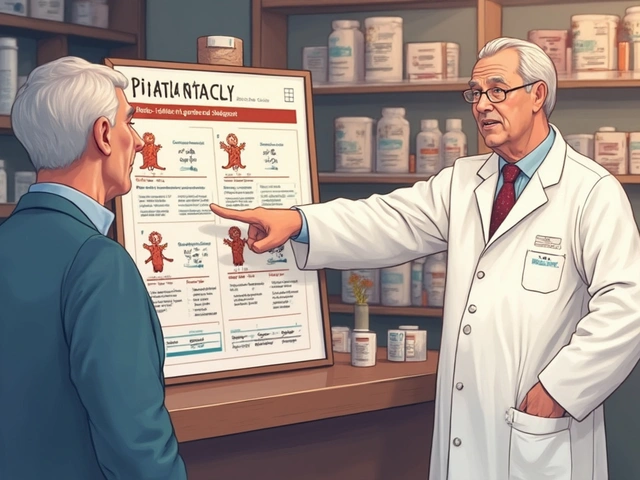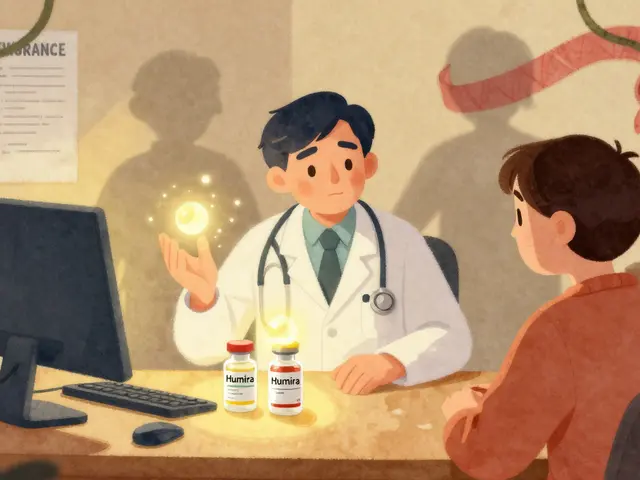Hypertension management: practical tips to lower blood pressure
High blood pressure often doesn't hurt you until it does. If you have hypertension, you can cut your risk with clear daily habits, smart use of medicine, and regular checks. This page pulls together practical advice you can use now and points to trusted articles when you need specifics.
Practical lifestyle changes
Start with food. Follow a DASH-style plan: more vegetables, fruit, whole grains, lean protein, and fewer processed foods. Swap salt-heavy snacks and canned soups for fresh options. Cutting sodium by small amounts — like using herbs instead of salt — lowers pressure over weeks. Watch calories and lose even a little weight; dropping 5-10% of body weight can make a big difference.
Move more. Aim for about 30 minutes of moderate activity most days. Brisk walking, cycling, or swimming all work. If 30 minutes feels hard, break it into three 10-minute walks. Strength training twice a week helps too.
Limit alcohol and quit smoking. Both raise cardiovascular risk. Stick to low to moderate alcohol and ask your provider for help to stop smoking. Sleep matters: poor sleep and untreated sleep apnea push blood pressure up. If you snore loudly or feel tired during the day, mention it to your doctor.
Meds, monitoring, and safe buying
If lifestyle changes aren't enough, medications are safe and effective. Common classes include ACE inhibitors, ARBs, calcium channel blockers, and diuretics. Take medicines exactly as prescribed. Missing doses or stopping suddenly can be dangerous.
Keep track at home. A reliable automatic cuff and a simple log tell your doctor more than occasional clinic readings. Many people aim for under 130/80, but target numbers depend on age and health. Share your home readings with your clinician and ask how often to check.
Thinking of buying meds online? Use trusted pharmacies that ask for a prescription, show real contact details, and have clear return and privacy policies. Avoid sites that sell without prescriptions or offer unbelievable low prices. Know customs rules if ordering from abroad — some shipments are stopped at borders.
Watch for interactions. Tell every provider about other drugs and supplements you take. Some over-the-counter pills, herbal products, and cold medicines can raise blood pressure or interfere with prescriptions.
Small changes add up. Start with one habit — like cutting 1 teaspoon of salt a day or adding a 10-minute walk — and build from there. If blood pressure stays high or you feel unwell, contact your healthcare team. Managing hypertension is a step-by-step process, and you don't have to do it alone.
Use good measurement technique: sit quietly five minutes, feet flat, cuff at heart level, take two readings one minute apart and record both. Ask for a medication review at least once a year to check doses and side effects. Simple tools like a pill box, phone reminders, or a partner who reminds you can hugely improve adherence. If you get severe headache, chest pain, shortness of breath, or fainting, seek immediate medical help. Talk openly with clinicians.
16
Lisinopril-HCTZ and Exercise: Staying Active Safely with Blood Pressure Medication
Juggling Lisinopril-HCTZ for hypertension and an active lifestyle can get tricky. This article dives into smart, realistic tips for working out while safely managing medication. It breaks down the science, highlights common challenges, and offers practical suggestions so you can move confidently toward your fitness goals. Whether you’re new to exercise or want to keep pushing limits, you’ll find advice to help prevent side effects, fuel motivation, and support heart health. Get ready for a smooth path to better blood pressure and a more energized you.
Latest Posts
Popular Posts
-
 Enteral Feeding Tube Medication Safety: Compatibility and Flushing Protocols Explained
Enteral Feeding Tube Medication Safety: Compatibility and Flushing Protocols Explained
-
 Magnesium Supplements and Osteoporosis Medications: What You Need to Know About Timing
Magnesium Supplements and Osteoporosis Medications: What You Need to Know About Timing
-
 Extended Use Dates: How the FDA Extends Drug Expiration Dates During Shortages
Extended Use Dates: How the FDA Extends Drug Expiration Dates During Shortages
-
 Meniere’s Diet: How Sodium Restriction and Fluid Balance Reduce Vertigo and Hearing Loss
Meniere’s Diet: How Sodium Restriction and Fluid Balance Reduce Vertigo and Hearing Loss
-
 OTC Heartburn Medications: Antacids, H2 Blockers & PPIs Explained
OTC Heartburn Medications: Antacids, H2 Blockers & PPIs Explained



